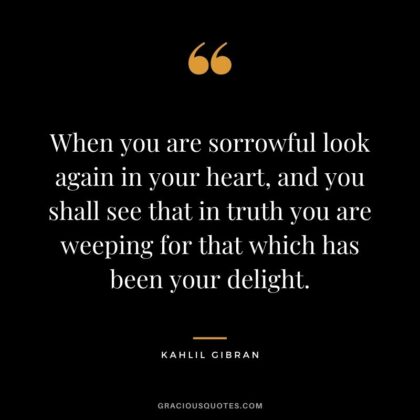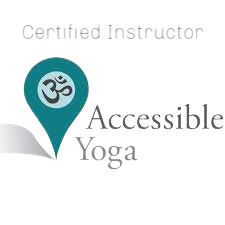What does Suffering mean to you?
Leesa Renee Hall is an author on Patreon I subscribe to for writing prompts.
I love this discipline of using prompts and I write every morning and evening either with one of her prompts or with whatever chatter is consuming my mind and the energy of my body.
This was the prompt that was posted today and I am wanting to share with you unpacking my own stuff around this notion, this concept of suffering.
One of the things I am aware of in my life is that I am not afraid of the pain of other beings. My calling is to be in this space of pain with others as a compassionate witness, whether that is in hospice work, trauma work and in interpersonal relationships. Being in this space is not about fixing, goal setting, and supporting personal improvement but being with myself and others as we are, breathing, moving, grounding, finding ways to connect to inherent worth and value. Healing by being and by loving.
My closest and most authentic relationships tend to be with others who share this way of being in the world with one another. This way has emerged in the commitment to my ongoing process of healing.
So, pain and loss are inevitable. They are an inevitable part of the human experience. So much of what I realize in my own journey of healing and the journey I am on walking with others in their own healing, is how ill equipped culture prepares us for pain and loss. The examples I have personally witnessed are attitudes of gloom, doom and negativity (victimization) or false positivity masked in cheerful stoicism (bypass).
These are both sadly familiar to me and this good people is what I recognize as suffering.
I suffer when I center the entire world around my pain and I suffer when I deny the impact of pain on all the layers of my being.
Where do you think this might show up raging in dysfunction?
If you guessed relationships, then you get a Hello Kitty sticker!
I was definitely groomed by my mother to own victimhood. There was the cultivation of scarcity so there was a sense of “other people have things that you don’t.”
The reason behind this, according to my mother, was the lack of generosity on my father’s part with child support and the general sense I believe she had of feeling wronged in the ending of the relationship.
There was also the experience of growing up in an alcoholic, often violent and chaotic home where no one really held themselves accountable for their actions in the everyday microaggressions let alone emotional, physical and sexual abuse. Deflection was practiced often and well.
So to manage this, I lived for a long time swinging on a pendulum between feeling like the world owed me because I had been taught scarcity and deflection and then swinging towards bypassing and denying the scars and wounds from the pain I experienced.
Part of this was to reinvent myself and become someone else. I looked at people who to my observation, had “normal” families. (Me now…WTF? Right?). I listened to their stories, their ways of interacting with the world, their mannerisms, their ways of speaking, dressing, etc,. And I tried to be these people who I believed to be exempt to trauma, chaos and drama.
I did the best I could for a good while trying to become someone other than an angry, grieving girl who didn’t know who she was, doubted her own worth and value as a human being and also didn’t believe she had anything of worth and value to offer in this world.
I don’t know if anyone who has known me in highschool, college and the years after would have noticed any of these things about me. It is interesting to note, while I still have friends and close relationships from highschool, I don’t have any from college and after until I started to do my own work of unpacking both victimization and bypass. I still enter into these states occasionally as they are the default networks, but I don’t set up camp there and hammer pegs into the ground. I will share more another time about this still ongoing process that is also the work I am called to do in this world and the reason I am incarnated on this planet at this time.
In my current work with trauma and recovery I enter this space with compassion for people. Why would I judge someone who did not know how to manage pain? When we manage it with victimization and/or bypass, we create suffering for ourselves and others.
When we learn with many tools, including somatic practices that can help us regulate, manage, discharge and energize the central nervous system, we are reclaiming our own agency and the ability to grow our lives into Right Action instead of living in the suffering of reactivity.
Another observation is that there is pain that is unnecessary. The pain of a child that has no recourse to trauma. The pain of racism. The pain that occurs when your boundaries have been violated. The pain that occurs with silence around this violation. The pain that occurs when one cannot exist in a safe, predictable environment and have freedom, safety and peace. We see great suffering as a result of systems of oppression that prevent beings from living in right relationship.
How can we use our own understanding of pain, of suffering to make these changes in the larger culture?
We can see the scarcity and deflection attitude being played out in the anti immigration rhetoric. Someone has something you don’t. It is because they are taking your jobs. This is what we are hearing. People being called animals.
We can see bypass, lack of authenticity and denial in many of our spiritual communities. Whether it be a church or a yoga studio, many spiritual people have an intense hyper focus on the individual and if it is a community centered in whiteness, rarely will engage in the work of individual as well as collective liberation around race, ability, gender expression and privilege.
Again, where we are now in our society is the larger default network of power and privilege that upholds these systems. I know how difficult it has been for me to build new neural networks that I have had to cultivate and know how to activate to not constantly default to the old networks of victimization, bypass, lack of worth and deflection.
But we need to do this not just for ourselves but for the collective.
The old order is crumbling.
Trauma and abuse is beginning to be recognized as not just experiences that happen to individuals but part of a larger culture that uses force and dominance to impose beliefs and through the imposition of these beliefs, policies that support this old order throughout institutions.
We are also seeing movements of healing and voices claiming power. Survivors are owning their stories of healing and bringing accountability and justice to not just the perpetrators, but to the systems that allowed these atrocities to occur and often protected abusers.
Black Lives Matter is a movement of speaking truth to pain and loss and the amazing testimony of Patrisse Cullors of reclaiming dignity and committing to speaking truth to power in her personal life and to the collective is inspiring.
Tada Hozumi and Dare Sohei are two amazing beings I have had the privilege and honor of studying with them around the work of ancestral healing and this notion of the trauma responses of not merely our individual soma (body), but the various cultural somas we are moving through in our spheres.
We can see responses and reactions to this trauma in cultural somas and hopefully be intentional about creating collective practices of healing, support, listening, compassionate witness and tending of the myriads of needs that show up with trauma. Loving our way into being with one another.
Let us live into and act into a world where we care for one another. Where we are not afraid of the unknown because we can feel into our deepest core that the status quo is not serving all of us and of course not serving most of us. We heal in the cultural soma of trauma when we can tap into the collective imagination and draw upon practices of nurturing, creativity, and anything that brings us into empathy and compassion. That serve to remind us of connection rather than isolation. Where we can be reminded that we all matter, that we belong.
April is Sexual Assault Awareness Month. Believe. Support. Respect Survivors.




